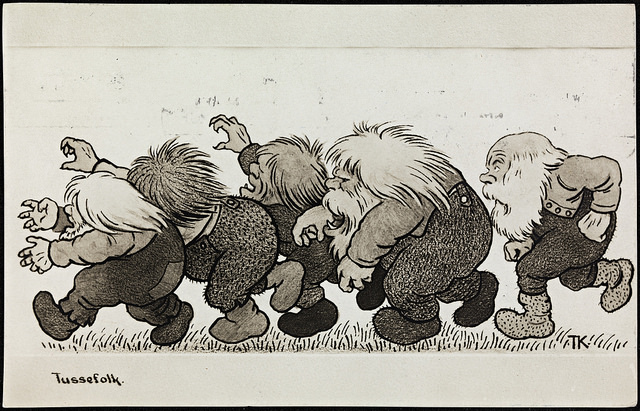 Web 2.0 saw a promise of online collaboration for social good. But is the party over? Or at least, has the shine come off?
Web 2.0 saw a promise of online collaboration for social good. But is the party over? Or at least, has the shine come off?
by GUEST EDITOR Chris Bolton
Way back in 2008 I read ‘Wikinomics’ by Don Tapscott and Anthony Williams, and it pretty much changed my life. At the core of Wikinomics was the idea that the large scale collaboration of people online, was going to change everything we do. The ‘phrase d’jour', was Web2.0; used a lot at the time to describe the ideas around 'online mass collaboration', including what we now recognise as social media.
Wikinomics was full of inspiring examples of Web2.0 working in real life, including one about the response to a disaster that really intrigued me. This was the story of how a group of computer coders had quickly come to the rescue following the 2005 Hurricane Katrina; which had devastated many USA Southern States and in particular New Orleans. Responding to the missing persons crisis almost 3000 computer coders gathered online; developed and populated a system called "People Finder". The system automatically collated data from the dozens of fragmented databases, message boards and other sources online where people were posting information. The result was a single source which outperformed any government initiative and more importantly, helped to reunite people with loved ones. It’s an inspiring story, well worth reading about in Wikinomics (pg 185 -188). Mass collaboration online, Web2.0 as it was described, (including social media) was going to save the world, and I was hooked!
Imagine my disappointment seveb years later when some people who really know about Web2.0 started telling me that "you need to be cautious of social media in a crisis". My 'caution' was needed because social media was being systematically used and manipulated to influence how people behave. They suggested that, "approximately 30 per cent of tweets in a crisis are ‘bot’ (automatically) generated, and many are specifically aimed at escalating the incident". The reason why this happens was not explained (or fully known I suspect), so I was happy to partially ignore it. Web2.0 and social media is a force for good..... Isn't it?
Then I bumped into the phenomenon of Troll Farms, so I sat up and paid close attention.
Basically Troll Farms are coordinated efforts to spread misinformation through social media for an unclear but often dubious purpose.
This article[1] in The New York Times describes a social media crisis that 'somebody' manufactured in the town of St Mary Parish in Louisiana in 2014. Anyone looking at social media at the time would have been convinced that a local Chemical Plant had actually exploded. Imagine how that would make you feel if you lived anywhere nearby, or had friends and family in the vicinity?
Basically there was a concerted effort via; Twitter, fake websites, You Tube videos, Wikipedia pages, texts and other methods to create the impression that there had been a major explosion at a Chemical Plant in St Mary Parish. Nobody seems to know why, but the scale of the efforts suggest something very well-resourced and highly organised was behind the 'crisis', possibly a 'foreign state'?
The New York Times article goes on to talk about the workings of the Internet Research Agency, an alleged Russian Troll Farm*. It’s all very interesting, detailing how workers would spend 12 hours a day on multiple false social media profiles spreading misinformation for a particular purpose. 100's of staff spending 12 hours a day doing things like innocuously commenting on blog posts while subtly (or not) inserting political messages.
Depending on your point of view, you can decide how much of The New York Times article might also be misinformation about the Russian misinformation service (it's a funny old world).
*Note - Other Troll Farms are available - this isn't just a Russian thing. Other Countries/Large Corporations/Political Groups very probably have their own equivalents of 'Troll Farms'.
This all feels very different to the world of Web2.0 Tapscott and Williams talked about in Wikinomics. Why on earth would someone want to manufacture a crisis using social media? Why would someone want to escalate an existing crisis using 'Twitter bots'?
I'm not clear on any of the answers to these questions. I do however think that some of the challenges aren't very different to what we've always faced - people want to influence what we do by feeding us certain types of information.The rise of Web2.0 and Troll Farms just seems to give a bit more scale and speed to the transfer of the (mis)information.
But no need to panic just yet (Mr Mannering) and switch off your social media. The trick in responding might be bit of old fashioned good practice; check your sources, work out who you can trust, test what you find and do a bit of 'triangulation'...... before you press the share or retweet button.
Chris Bolton works for the Good Practice Exchange and the Wales Audit Office.
